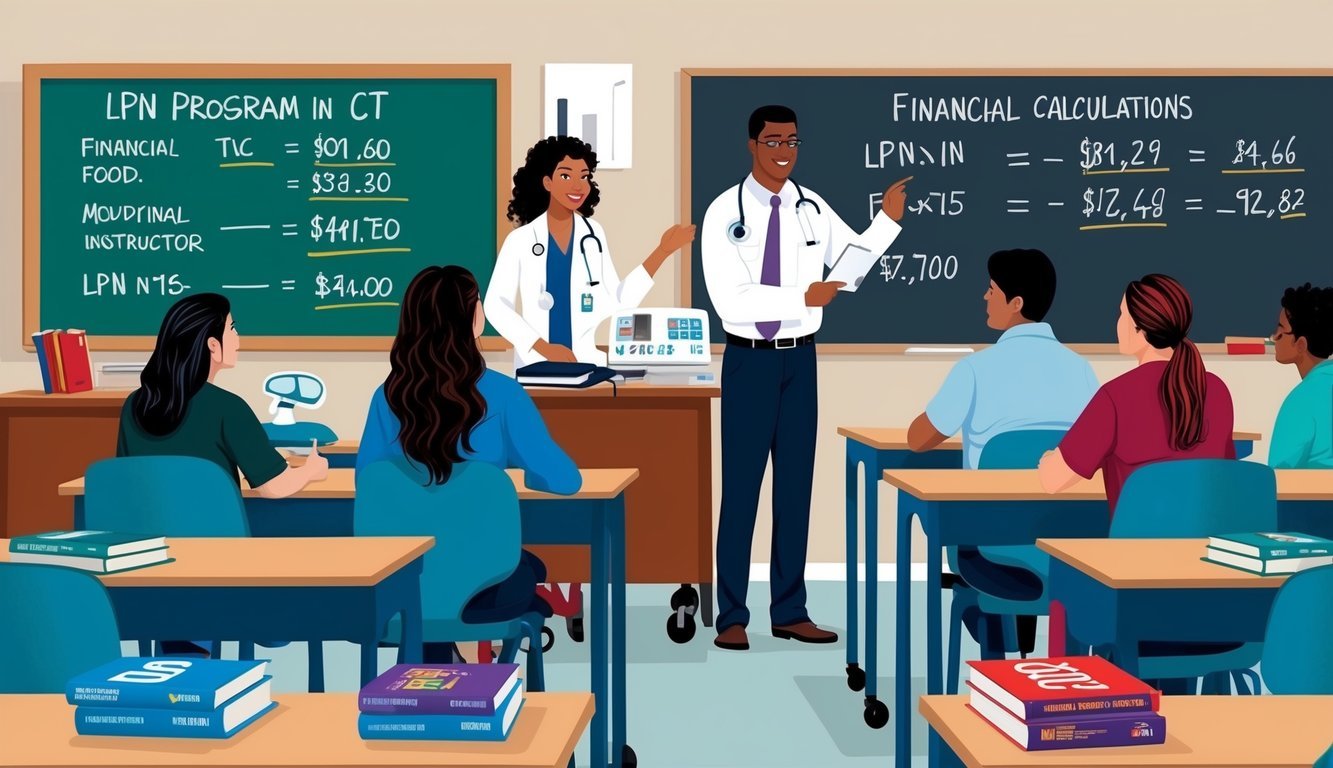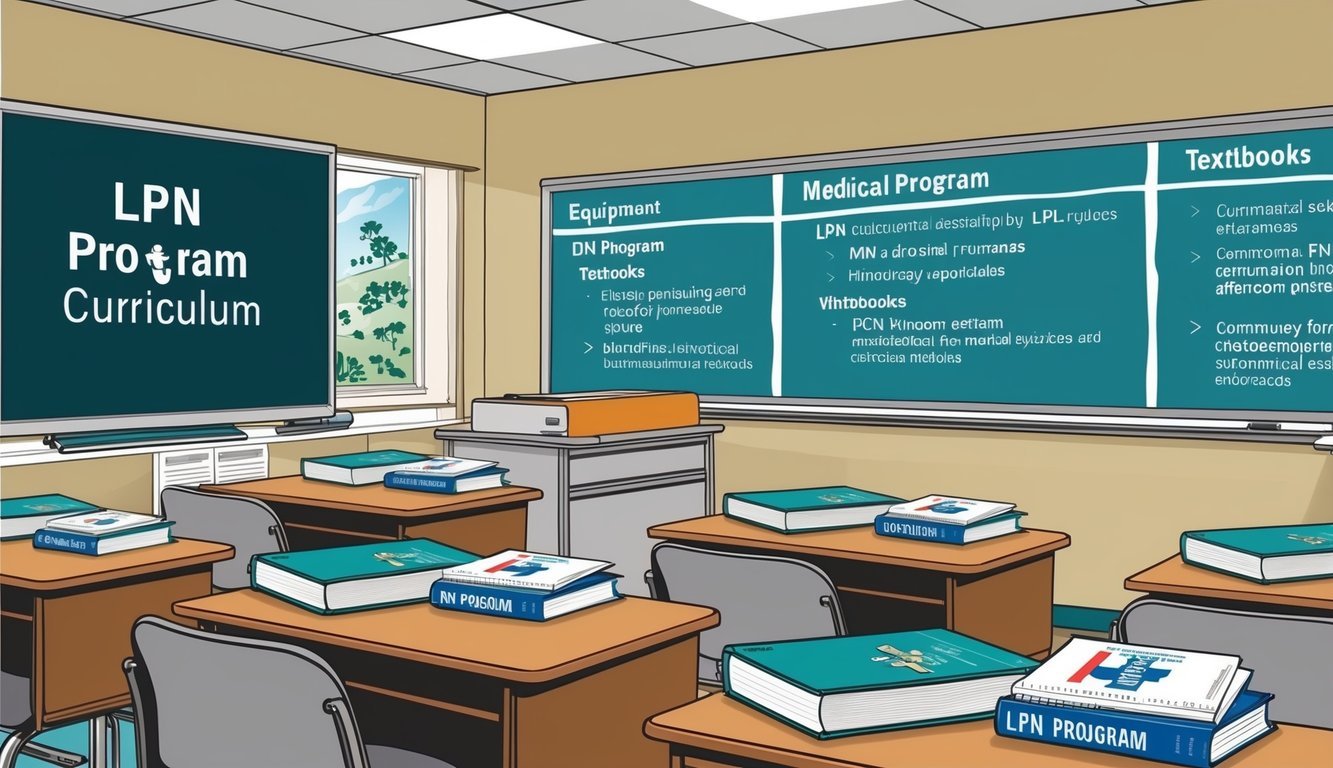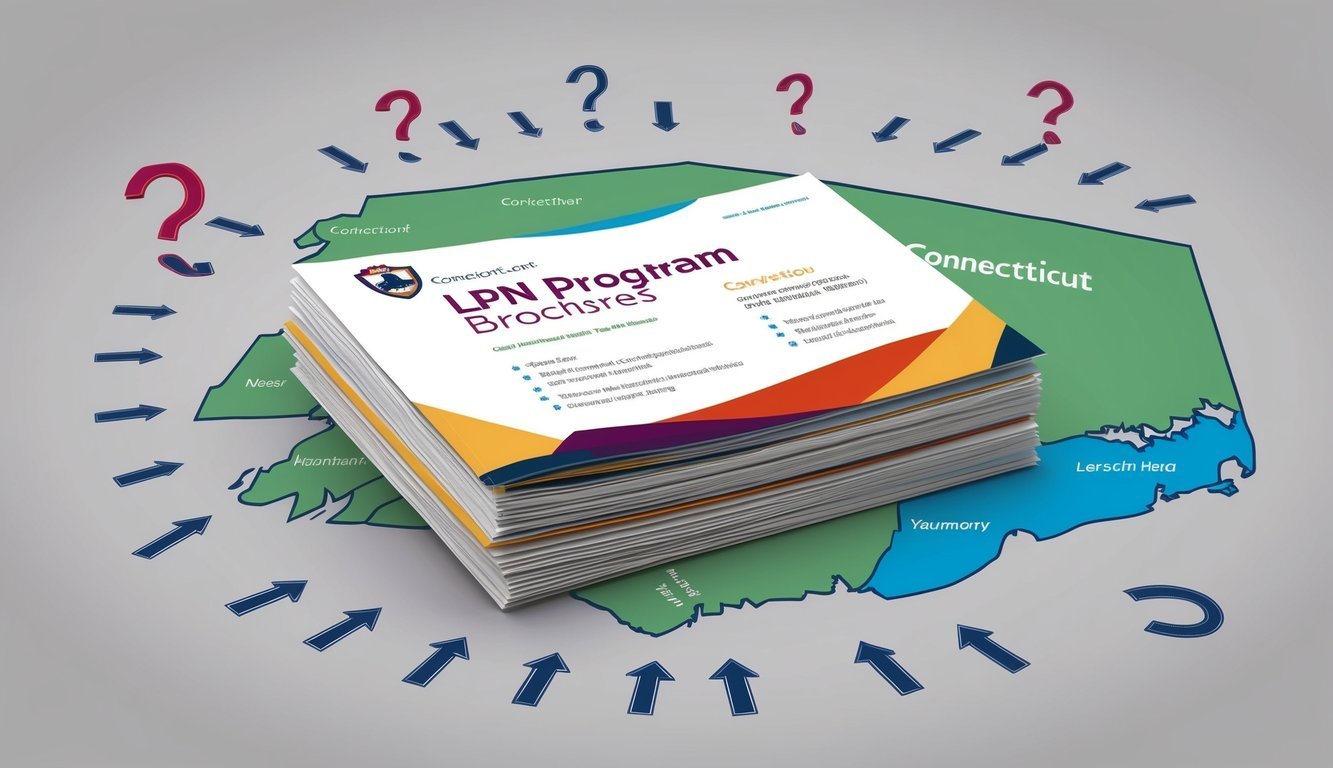Licensed Practical Nurse (LPN) programs in Connecticut offer you a solid pathway to a rewarding career in healthcare.
If you’re considering becoming an LPN, you’ll find that programs across the state prepare you for a role that is both important and in demand.
Completing an LPN program can take as little as 1-2 years, allowing you to start your new career quickly.
As you explore these programs, you’ll want to consider various factors, such as admission requirements and curriculum details.
Many schools provide both full-time and part-time options, giving you flexibility in your education.
Additionally, understanding financial considerations can help you make informed choices about tuition and funding.
With the growing need for healthcare professionals, pursuing an LPN career can lead to multiple opportunities.
You can work in hospitals, clinics, and nursing homes, contributing to essential patient care.
Armed with the right training from Connecticut’s programs, you can embark on a fulfilling journey in the medical field.
Key Takeaways
- LPN programs in Connecticut prepare you to start your nursing career quickly.
- Understanding admission and financial aspects is crucial for your success.
- Career opportunities for LPNs are abundant, making it a promising choice.
Overview of LPN Programs in Connecticut
In Connecticut, Licensed Practical Nurse (LPN) programs prepare you for a demanding and rewarding career in healthcare.
These programs offer essential training in nursing fundamentals and ensure you are ready for the NCLEX-PN exam.
Accredited Nursing Schools
To become an LPN, you must choose an accredited nursing school.
Connecticut offers several options, including:
| School Name | Location | Contact Information |
|---|---|---|
| Lincoln Technical Institute | Shelton | 203-929-0592 |
| Norwich Technical School | Norwich | 860-889-8453 |
| Porter and Chester Institute | Bridgeport | 203-335-1770 |
These schools provide comprehensive programs that cover nursing fundamentals and other essential skills.
Admission requirements generally include a high school diploma or GED and a minimum GPA of 2.5.
Program Length and Structure
LPN programs in Connecticut usually take 12 to 18 months to complete.
The curriculum involves both classroom instruction and hands-on training.
Key topics include:
- Nursing Fundamentals: Understanding patient care and safety.
- Medication Administration: Learning to give medications safely.
- Clinical Skills: Gaining practical experience in healthcare settings.
Additionally, you will prepare for the NCLEX-PN exam, which is necessary for licensure.
Programs often offer flexible schedules, including full-time and part-time options to fit your needs.
Admission Process and Prerequisites
Understanding the admission process and prerequisites is crucial for your journey to becoming a Licensed Practical Nurse (LPN) in Connecticut.
You need to be aware of application deadlines and entrance examination requirements to ensure a smooth enrollment process.
Application Deadlines
Each LPN program in Connecticut has its own specific application deadlines.
It’s important to check these dates early to avoid missing out.
Most schools accept applications for both fall and spring semesters.
Here are some common deadlines you might encounter:
| Application Type | Deadline |
|---|---|
| Fall Semester | May 1 |
| Spring Semester | October 1 |
To apply, you usually need to submit a completed application, along with your high school diploma or GED.
Be sure to verify if any prerequisite courses need to be completed beforehand, as these vary by institution.
Entrance Examinations
Most LPN programs require you to take an entrance examination, such as the TEAS (Test of Essential Academic Skills).
The TEAS assesses your reading, math, science, and English skills.
You will generally need to achieve a minimum score to be considered for admission.
Here are some essential points about the TEAS:
- Format: Multiple-choice questions
- Duration: Approximately 3.5 hours
- Preparation: Many schools offer resources and practice tests.
Studying ahead of time for the TEAS can significantly improve your chances of acceptance.
Check with your selected programs for specific score requirements and to find resources for effective preparation.
Financial Considerations

When pursuing an LPN program in Connecticut, understanding the costs and available financial support is crucial.
This section discusses tuition fees and potential funding options that can ease your financial burden.
Tuition and Fees
Tuition for LPN programs in Connecticut varies by institution.
Generally, you can expect to pay between $10,000 and $30,000 for the entire program.
This cost typically includes:
- Tuition Fees: The core cost for the program.
- Books and Supplies: Approximately $1,000 to $2,500 for essential materials.
- Clinical Fees: Some schools charge extra for lab and clinical experiences, which may add another $1,000.
You should also factor in additional costs like transportation, uniforms, and other personal expenses.
For a detailed breakdown, visit Practical Nursing Programs in Connecticut.
Scholarships and Grants
There are various scholarships and grants available specifically for LPN students.
These resources can significantly lower your education expenses.
Some options include:
- State and Federal Grants: Programs like the Federal Pell Grant provide need-based aid that does not require repayment.
- LPN Scholarships: Look for organizations like the National Association for Practical Nurse Education and Service (NAPNES) which offer scholarships.
To find more scholarships tailored for nursing students, check sites like NursingProcess.org.
Researching and applying for these financial aids may help minimize your debt and support your educational journey.
LPN Program Curriculum and Training

The curriculum for LPN programs in Connecticut includes both clinical experience and classroom learning.
These components are essential for developing the skills required for effective patient care in various healthcare settings.
Clinical Experience
Clinical experience is a crucial part of your LPN training.
In this hands-on setting, you will apply what you have learned in the classroom to real-world patient care situations.
During your clinical rotations, you will work in various healthcare facilities under the supervision of licensed professionals.
You will have the chance to practice skills in areas such as:
- Medication Administration: Understanding pharmacology helps you give medications safely.
- Patient Assessments: You will learn to evaluate patients’ health statuses.
- Basic Nursing Skills: This includes bathing, feeding, and monitoring vital signs.
These experiences prepare you for the NCLEX-PN exam, which is needed to practice as a licensed practical nurse.
Classroom Learning
Classroom learning lays the foundation for your nursing education.
You will engage in courses that cover essential topics, such as:
- Nursing Fundamentals: Basic principles of nursing care.
- Pharmacology: Understanding medications, dosages, and side effects.
- Human Anatomy and Physiology: How the body functions and responds to illness.
You will also participate in simulations and group discussions.
These interactions enhance your critical thinking skills and help prepare you for real-life challenges in nursing.
Your course requirements may vary, but they typically include a high school diploma or GED and necessary prerequisite classes.
Check with your chosen program for specific details.
Career Opportunities and Growth

Licensed practical nurses (LPNs) have diverse job prospects and potential for career advancement in various healthcare settings.
Understanding where LPNs can work and how they can grow is essential for your career planning.
Employment Settings
As an LPN, you can find employment in a wide range of environments.
Common settings include:
- Nursing Homes: Provide daily care for elderly patients, assisting with daily activities.
- Hospitals: Work under registered nurses and doctors to deliver patient care in various departments.
- Rehabilitation Centers: Help patients recover from surgery or illness, focusing on physical and emotional support.
- Healthcare Teams: Collaborate with other nursing professionals to ensure comprehensive patient care.
LPNs play a crucial role in the healthcare system.
You will be responsible for monitoring vital signs, administering medications, and discussing patient care with families.
Advancement Potential
LPNs have various paths for career advancement.
One option is to pursue further education to become a registered nurse (RN).
This can open up more opportunities in nursing care roles.
Other advancement options include:
- Specialized Certifications: Focus on areas like pediatrics, gerontology, or wound care.
- Management Roles: Move into supervisory positions within nursing homes or healthcare facilities.
- Education and Training: Transition to teaching future LPNs at vocational schools.
By choosing to advance your career, you can increase your earning potential and take on more responsibilities within the healthcare team.
Explore options available at institutions like Porter and Chester Institute for additional insights on LPN programs and career paths.
Frequently Asked Questions

This section addresses common inquiries related to LPN programs in Connecticut.
You will find important details about accreditation, program duration, costs, online options, application processes, and top institutions.
What are the accreditation requirements for LPN programs in Connecticut?
LPN programs in Connecticut must be accredited by recognized organizations.
The candidates need to be educated in programs approved by the Connecticut Board of Examiners for Nursing.
This ensures the program meets educational standards required for licensure.
How does the duration of traditional LPN programs compare to accelerated options in Connecticut?
Traditional LPN programs typically take about 12 to 18 months to complete.
In contrast, accelerated programs can often be finished in a shorter time, usually around 8 to 12 months.
The choice between these options depends on your personal circumstances and career goals.
What are the typical costs associated with LPN programs in Connecticut?
The costs for LPN programs can vary.
On average, you might expect to pay between $10,000 and $30,000 for tuition.
Additional costs like textbooks, uniforms, and supplies may be around $1,000 to $2,000.
Financial aid options are often available.
Can LPN programs be completed online in Connecticut and are they credible?
Yes, some LPN programs offer online coursework.
However, you must still complete in-person clinical experiences as part of your training.
Make sure the program is accredited and meets state requirements for credibility.
What is the process for applying to LPN programs in Hartford, CT?
To apply for LPN programs in Hartford, you generally need to complete an application form and submit your transcripts.
You also need to provide proof of any prerequisite courses.
Some programs might require entrance exams or letters of recommendation.
Which institutions offer the best LPN programs in Connecticut based on graduation rates?
Connecticut has various institutions known for strong LPN programs.
You may want to explore options such as Lincoln Technical Institute and other accredited schools recognized for high graduation rates.
It’s wise to research and compare their offerings.

